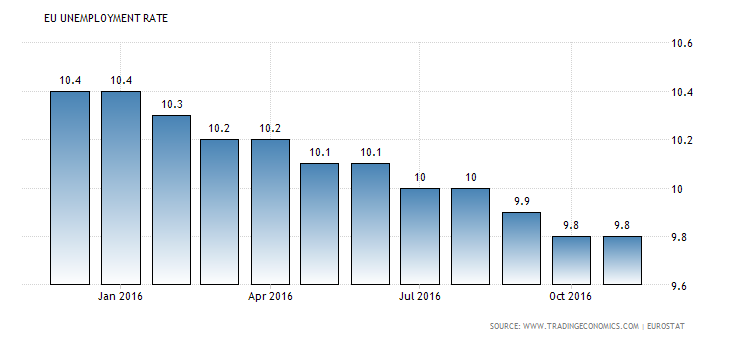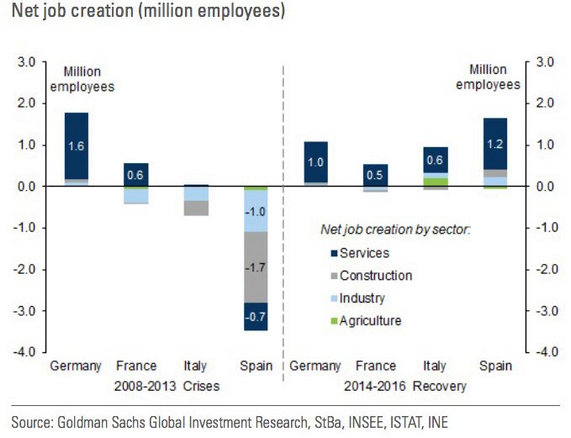Here Is A Surprise – In Recent Years Job Creation In The Eurozone Has Been Heavily Tilted Towards Spain
There are numerous uncertainties and problems facing the euro zone countries. (Brexit, the impact of the Trump election, immigration issues, Italy's failed constitutional reform, speculation relating to ECB tapering and future Fed interest rate hikes),
Nonetheless, overall employment among the 19 countries that use the euro as a common currency has been growing, albeit rather slowly.
As of last November, the average unemployment rate for all of the countries in the zone was 9.8%. While unemployment within the zone is still very steep, the November rate is still considerably lower than the 10.5% rate recorded a year earlier. The peak euro area unemployment rate was 12.1% in April of 2013 and the lowest rate was 7.2% in March of 2008.

As Trading Economics points out in its web site, in November the lowest unemployment rates within the euro zone were recorded in Germany (4.1%) and Malta (4.8%); while the highest unemployment rates were in Greece (23.1% in September 2016) and Spain (19.2%).
Of course, the dispersion of jobs within the euro zone is very uneven. For example, Spain is the euro country which continuously records extremely high unemployment, usually even higher than Ireland and Greece. Spain’s unemployment rate reached an all-time high of 26.9% as of the first quarter of 2013.
Spain’s economy, which is heavily based on tourism and construction, lacks a strong industrial sector. Nonetheless, Spain, which suffers from a high level of structural unemployment, has actually experienced fairly strong job creation since 2014.
The recent surge in job creation can be traced to an improving tourism outlook, as Spain’s competitive advantage in this sector still remains quite strong. However, as the second chart illustrates, Spain has not even replaced the huge number of jobs it lost during the 2008-13 crisis phase.
It is also interesting to note that the larger and near fully employed German economy created jobs both during the economic crisis phase 2008 to 2003, as well as in the recovery that followed.




